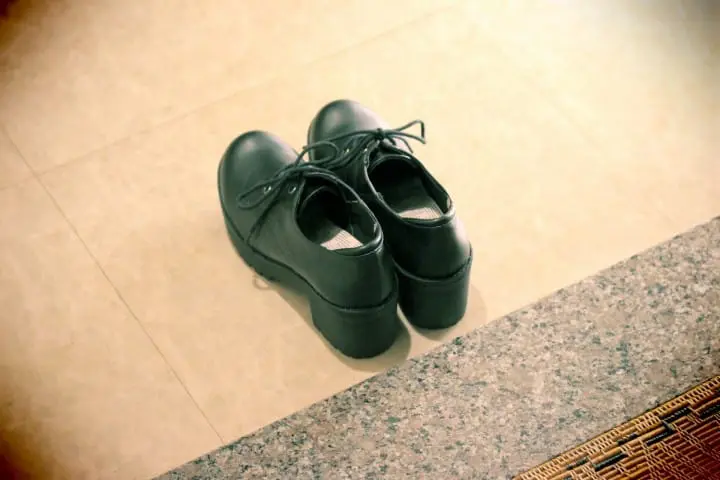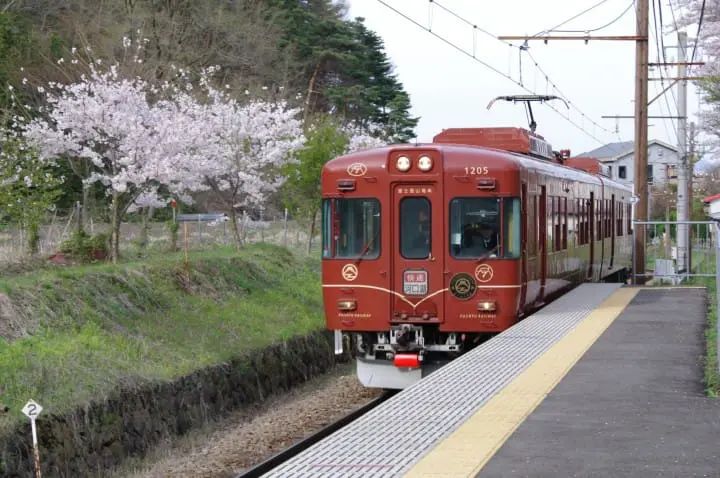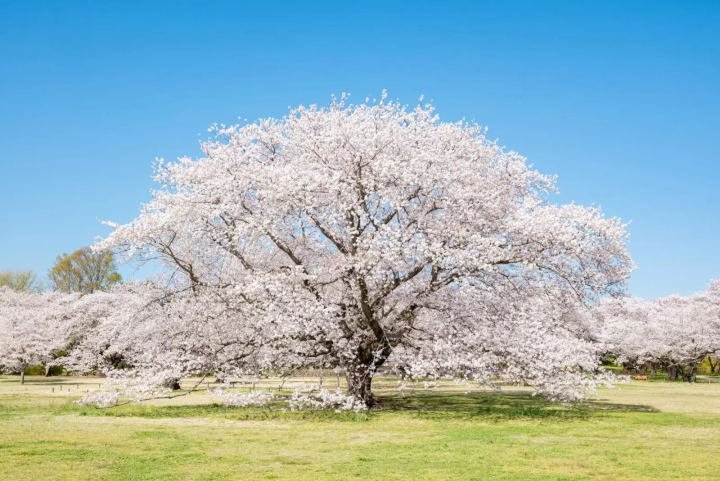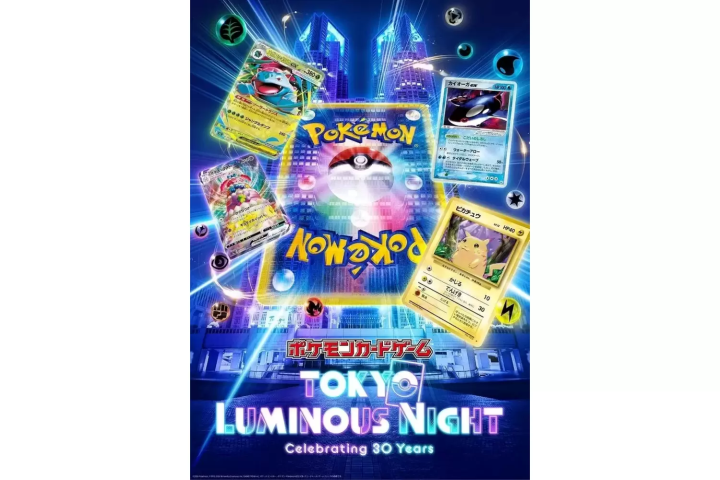Japan Travel Tips - 15 Things To Know Before You Come

Are you getting ready for a Japan trip but unfamiliar with the culture? International travel is complicated enough with planning and other preparations. This is a list of 15 tips and useful things to know about traveling in Japan.
Essentials Things to Know for a Japan Trip

First-time travelers or those unfamiliar with Japan will likely find aspects of Japanese culture surprising. Traveling to a foreign country can be stressful with planning and arranging details. We've put together a simple list of 15 things to know and manners that will be useful for having an enjoyable trip.
1. Basic English is Understood

Although English is part of compulsory education, in most cases, only an primary level English is understood in Japan. Furthermore, the English abilities of people usually declines the more distant you are from large cities and travel destinations like Tokyo, Osaka, and Kyoto.
Most people you meet will try their best to help, but just in case, it is recommended to learn some basic Japanese or have a translation tool ready. We also suggest you speak slowly and clearly when trying to converse.
English-language menus are at established restaurants and cafes, and public transportation signage is usually provided. For example, Tokyo's subways, trains throughout Japan, and Shinkansen will have English guidance and names of stations you can refer to. If you get lost or need assistance, don't hesitate to ask employees working at stations or law enforcement for help.
Read also
2. Bring Cash and a Method to Get More

Although established stores, restaurants, and other businesses commonly accept debit and credit cards, Japan is still largely a cash-based society. This means smaller stores will not accept cards and you will have to have money ready. It is advised to take cash with you, but if you run out, don't worry. ATMs at convenience stores, including Seven Eleven, Lawson, and Family Mart, will usually take international cards.
Keep in mind that you will have to pay with cash when buying public transportation, including subway tickets, trains, and buses. You can use a card to pay for Shinkansen tickets but it is advised to talk to someone at the ticket counter.
3. Practice Your Manners on the Train

Unless you have rented a car, you will likely be using a considerable amount of public transportation to travel around Japan. Many people find Japanese trains especially are clean, punctual, and easy-to-use.
One of the main reasons for this is that riders follow certain manners. On the train, refrain from talking on your cellphone, speaking too loudly, eating meals, and playing music without headphones. In doing so, you will help create a pleasant ride for everyone.
Please note that there are priority seats clearly marked for the elderly, sick, disabled, and pregnant riders. If you are sitting in one of these when someone boards, it is polite and kind to give up your seat for them.
4. Stand and Walk on the Left

Pedestrian traffic outside and in stations is usually very orderly. When you walk on sidewalks, stairs, and ride escalators, make sure to be on the left side to allow for smoother flow. You will see signs in major public transportation stations requesting pedestrians to do this.
An exception to this is Osaka, where you should stand on the right side on escalators.
5. Wear Shoes You Can Slip On and Off

It is custom to take off your shoes when entering homes in Japan. There are several more cases when you must also take off your shoes, including when entering temples, shrines, and even certain restaurants. Due to this, it is recommended to bring footwear you can easily remove and put back on. Slip-on sneakers are very convenient and a practical choice for all types of weather.
Most establishments will have signs or give instructions on when to take off your shoes, but in general, you should also remove your shoes when walking on tatami mats in a traditional-style Japanese room.
Read also
6. No Tips Necessary!

Japan is renowned for its superior hospitality and customer service, present everywhere, from convenience stores to traditional Japanese inns. This high-quality service is free.
As a general rule, you do not need to tip at restaurants, hotel employees, or other workers who help you during your journey. Wages and prices reflect the service component in Japan so you don't need to worry.
Please be aware, however, that the handling of tips is different for tour travel. It may be necessary to give tips to guides, tour conductors, and drivers.
Also, certain fine dining restaurants may add a service charge to your bill at the end.
7. The Streets are Spotless, but Trash Cans are Few

Another big difference you may notice when visiting Japan is the high amount of clean, well-kept streets, with a perplexing low number of trash cans. During a visit, you may be trying different drinks, snacks, and meals outside or on-the-go, but how do you dispose of your trash?
One solution is to consume your snacks and drinks at the place where you bought them. You can get rid of your trash at that location or hand it to an employee of the establishment to take care of after you are done. If you forget to do this, you may have to wait until you arrive at your next destination or lodging to dispose of your waste, since trash cans on the street are very uncommon.
Also, keep in mind that Japan sorts the majority of its waste. If you have a plastic beverage bottle, cans, or paper waste, make sure to throw it away in the appropriate container.
8. Prepare Wi-Fi Ahead of Time

While more services in Japan are making it more common, well-working, free public Wi-Fi is still relatively rare. Prepare in advance your method for connecting to the Internet so that you can navigate without probelms from the airport to your lodging and other trip destinations.
There are many options you can try, from wireless, transportable Wi-Fi devices to SIM cards. Choose the method best suitable for your travel style and remember that there are a few public areas that offer reliable Internet connections for free, like convenience stores, Starbucks, and Tully's Coffee. Also note that nowadays, most accommodations will have Wi-Fi or provide a Wi-Fi device that you can carry around.
9. Stop into Convenience Stores

Convenience stores in Japan are, as their name suggests, extremely convenient and we suggest stopping in. Most are open 24/7 throughout the week, making them ideal if you need to do some shopping during late hours.
Major convenience stores in Japan are Seven Eleven, Lawson, and Family Mart. The merchandise they carry varies slightly by store and location, but you will find a variety of high-quality cold and hot food, delicious desserts, hot coffee and all kinds of drinks, cooking supplies, toiletries, and even clothing, at all stores.
In general, convenience stores will be cheaper than restaurants and cafes, too, making them the perfect place to grab a reasonably priced meal or snack. Some stores will have eat-in spaces where you can rest and enjoy your food.
Employees at many stores will speak some English, so if you need help, convenience stores are an option to receive guidance from.
10. Ride Trains with JR Passes and Discount Tickets

Picture from Tailor-Made Holidays In Japan With Japan Rail Pass
There are many ways to travel around Japan economically. In particular, the Japan Rail Pass is a ticket you should consider for a trip to Japan. For example, if you are staying seven days in Japan and will use the Shinkansen for a round-trip between Tokyo and Osaka, Kyoto, or Kobe, this cost of the pass will cover your round-trip fare. You can also utilize the JR Pass for all JR trains, buses, and a ferry that goes to Miyajima, Hiroshima. Please note that some restrictions apply. For more information, see the official website.
There are also other budget-friendly tickets that allow you to save money on a short-term basis. One is the JR TOKYO Wide Pass, ideal for day-trips or weekend trips to Tokyo's surrounding prefectures.
Visitors can also purchase discount passes for trains, subways, and buses within Tokyo, Osaka, and Kyoto. With a little preparation, you can ride smart and economically no matter where you are.
Read also
11. Utilize Coin Lockers to Sightsee Comfortably

Part of the fun of travel for many people is shopping. If you plan on picking up some gifts and souvenirs but are unsure of what to do with your extra luggage for the rest of the day, consider using a coin locker.
Coin lockers are easy to find and cost only a few hundred yen. For convenience, we recommend using lockers located in and around stations. Please note that on weekends and holidays, it may be hard to find available lockers at major stations in big cities, like Tokyo and Shibuya stations. However, it is a great feeling to have your hands free of luggage when sightseeing.
12. Japan is Safe for Solo Travelers

Japan is consistently ranked highly for its safety due to its low crime rate. You will see young elementary school students walking and riding the trains without any adults. If you have forgotten an item on a train or at a restaurant, it isn't uncommon for someone to come running after you to return it.
These factors make Japan a great place for solo travelers. However, accidents do occur, so take appropriate safety measures as you would during any other trip, and memorize emergency numbers just in case.
Read also
13. Venture into Japan's Countryside

Picture from Take The “Your Name” Tour! Enjoy Yourself In Hida Furukawa, Gifu
Tokyo, Osaka, and Kyoto are dynamic cities with endless entertainment, but consider adding a lesser-known, rural destination in your travel plans. The countryside will reveal a slow pace and different side of Japan that you won't find anywhere else. English signage and English speakers are few, but the residents are friendly and will try to converse with you in many cases.
Cuisine varies greatly by region in Japan, so make sure to try the local dishes, sweets, and drinks. There are also many rural areas with well-preserved townscapes where you can learn about history and see a traditional Japanese environment. The experience in the country provides a refreshing contrast to major sightseeing areas.
Read also
14. Eat as Much as You Can

Picture from Enjoy Sushi In Japan! Useful Tips And Tokyo's Best Sushi Restaurants
Japanese cuisine (washoku) was added to UNESCO's Intangible Cultural Heritage list in 2013. Moreover, restaurants in Tokyo and in other cities in Japan hold some of the most Michelin stars in the world.
From ramen to sushi, takoyaki, and okonomiyaki, the cuisine is incredibly varied by region and ideal for the adventurous food enthusiast. Additionally, the food quality and taste of Japanese food, no matter if you order from a street vendor or indulge at fine dining establishments, is much better than overseas. Food culture is taken seriously and is reflected in the high-quality ingredients and careful attention paid to each dish.
Not all restaurants will have English, but do not let that dissuade you from entering, as some menus will have pictures and staff who can help you. Explore and eat your way through Japan!
Please note that restaurants with options for those with dietary restrictions or allergies are limited. If you follow halal, are vegetarian, or are gluten-free, we suggest doing some preparation in advance to find where you can eat.
Read also
15. Any Time is a Good Time to Visit

Seasonal changes in Japan are very distinct. The famous cherry blossoms paint Japan shades of stunning pink in the spring. Summer brings lush greenery and a chance to hike Mt. Fuji. Colorful foliage arrives in fall throughout the country as do a number of local festivals with colorful floats. The winter brings clear blue skies and snow ideal for winter sports to northern and mountainous regions in the winter.
The cherry blossom season is gorgeous and synonymous with Japan. However, don't worry if you can't come in the spring. There is plenty to experience all year, from the variations in the landscape to food and cultural events. Keep in mind that the weather and temperatures vary greatly, so come prepared with the proper attire.
Read also
Prepare for Japan

Picture courtesy of JNTO Japan Photo Library
Whether you are visiting Japan for the first time or have made multiple trips before, learning about the culture and society here is sure to make your travel run more smoothly. A little bit of preparation will go a long way to create more time for you to enjoy an unforgettable trip!
Perhaps the most important thing, however, is to relax, keep an open mind, and take in everything Japan has to offer.
Born in 1959. Currently working as a freelance translator, after 21 years in various companies.
































































![[First come, first served] Tour the hotel and get luxurious rewards! Stamp rally exclusive to visitors to Japan!](https://resources.matcha-jp.com/resize/720x2000/2026/02/18-259040.webp)
![[2026] Top 5 Cherry Blossom Spots in Naruto City , Tokushima Prefecture ! Light-ups and Access](https://resources.matcha-jp.com/resize/720x2000/2025/03/04-226780.webp)
![[ Kusatsu City Shiga Prefecture ] Spring isn't just about cherry blossoms! 4 recommended spots to see blooming wisteria](https://resources.matcha-jp.com/resize/720x2000/2026/03/03-260242.webp)
![[Shizuoka/ Izu] March 8th (Sun) Sutra Calligraphy Session at Shuzenji Temple (Reservation Required)](https://resources.matcha-jp.com/resize/720x2000/2025/05/31-235020.webp)